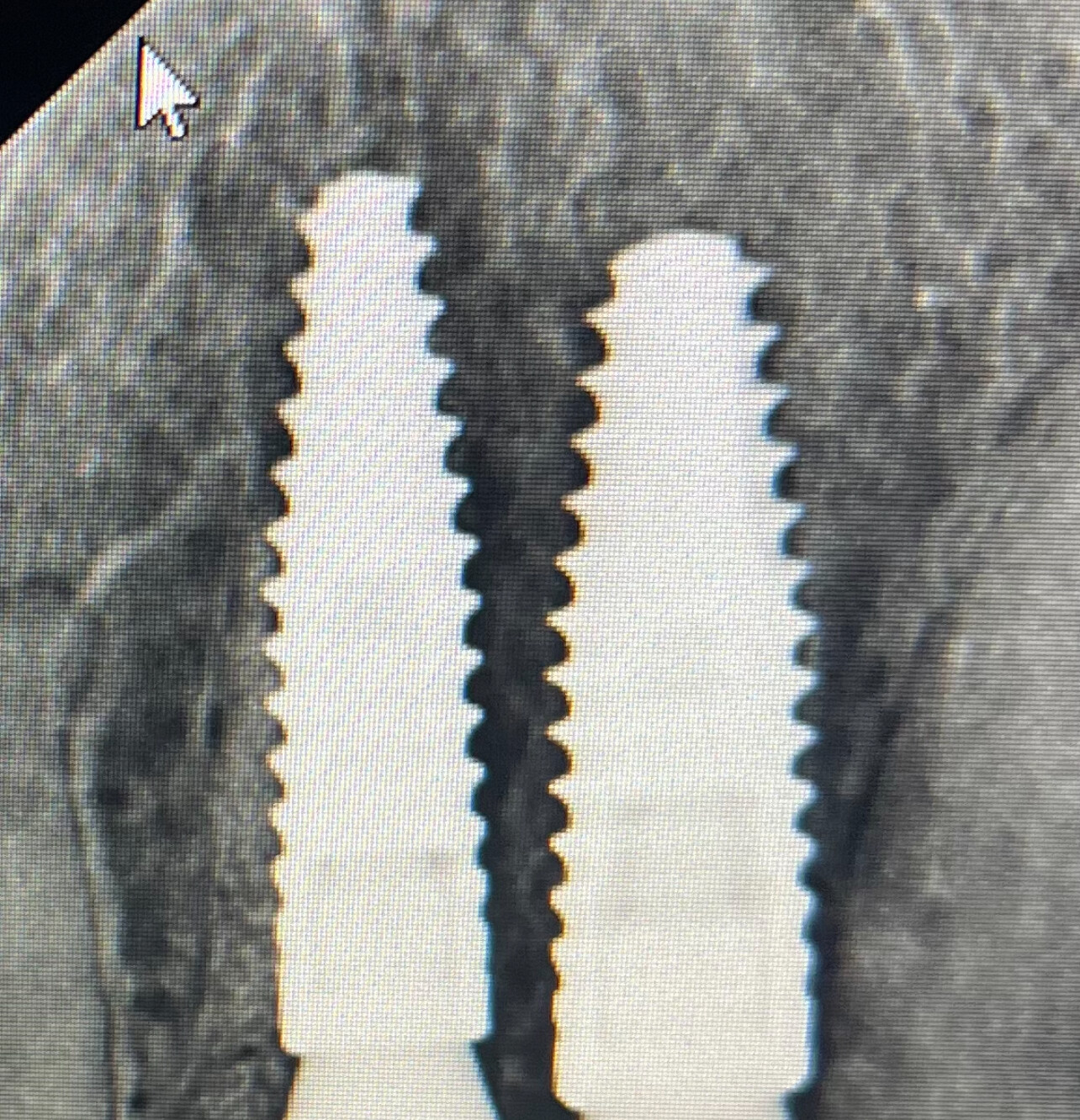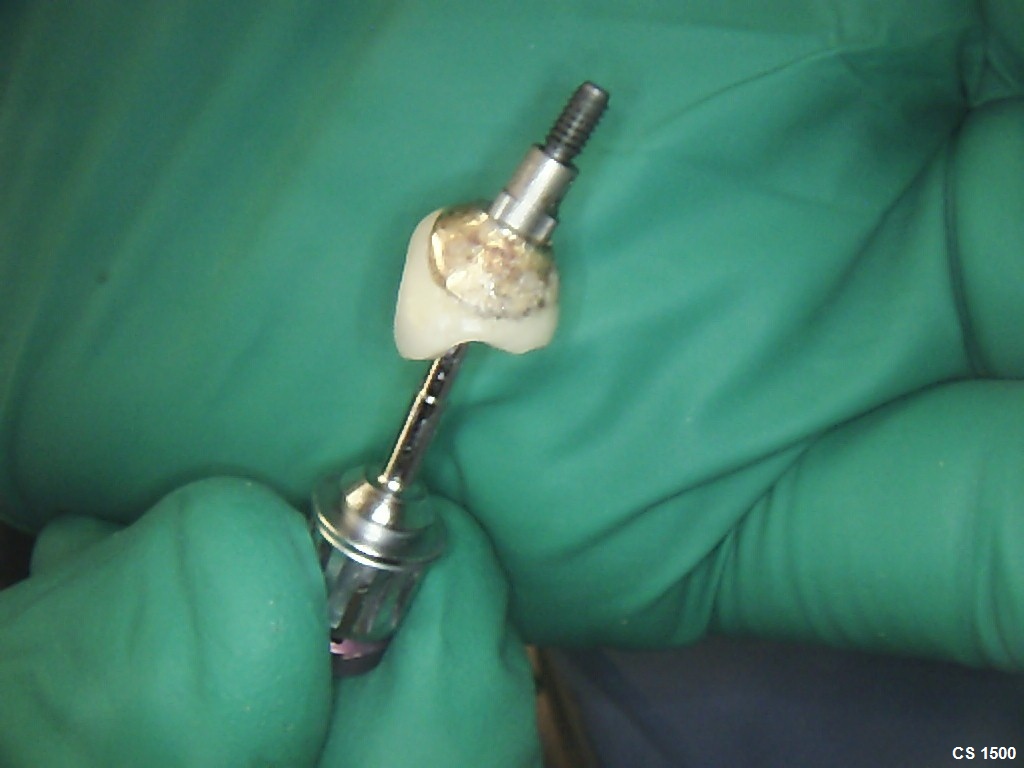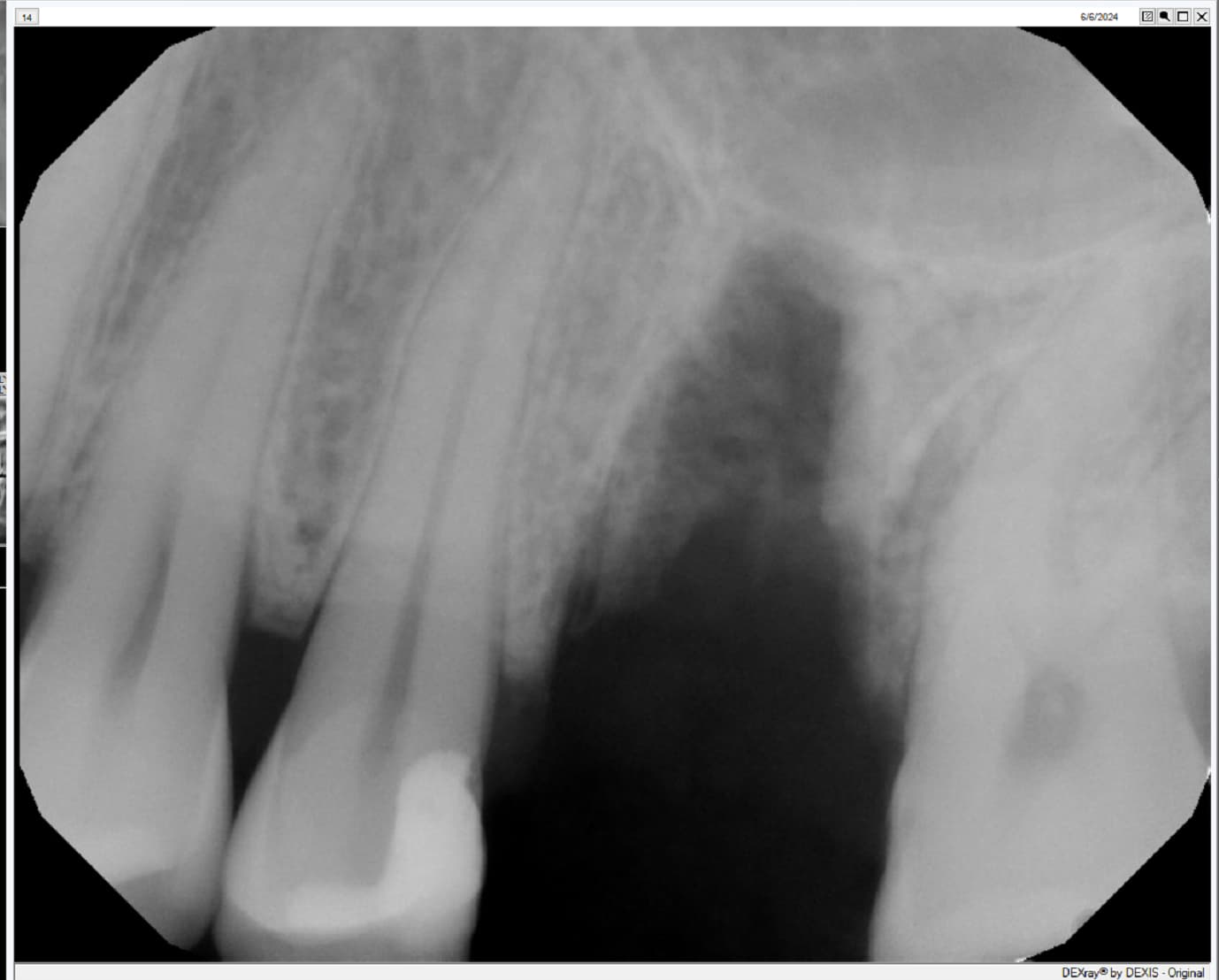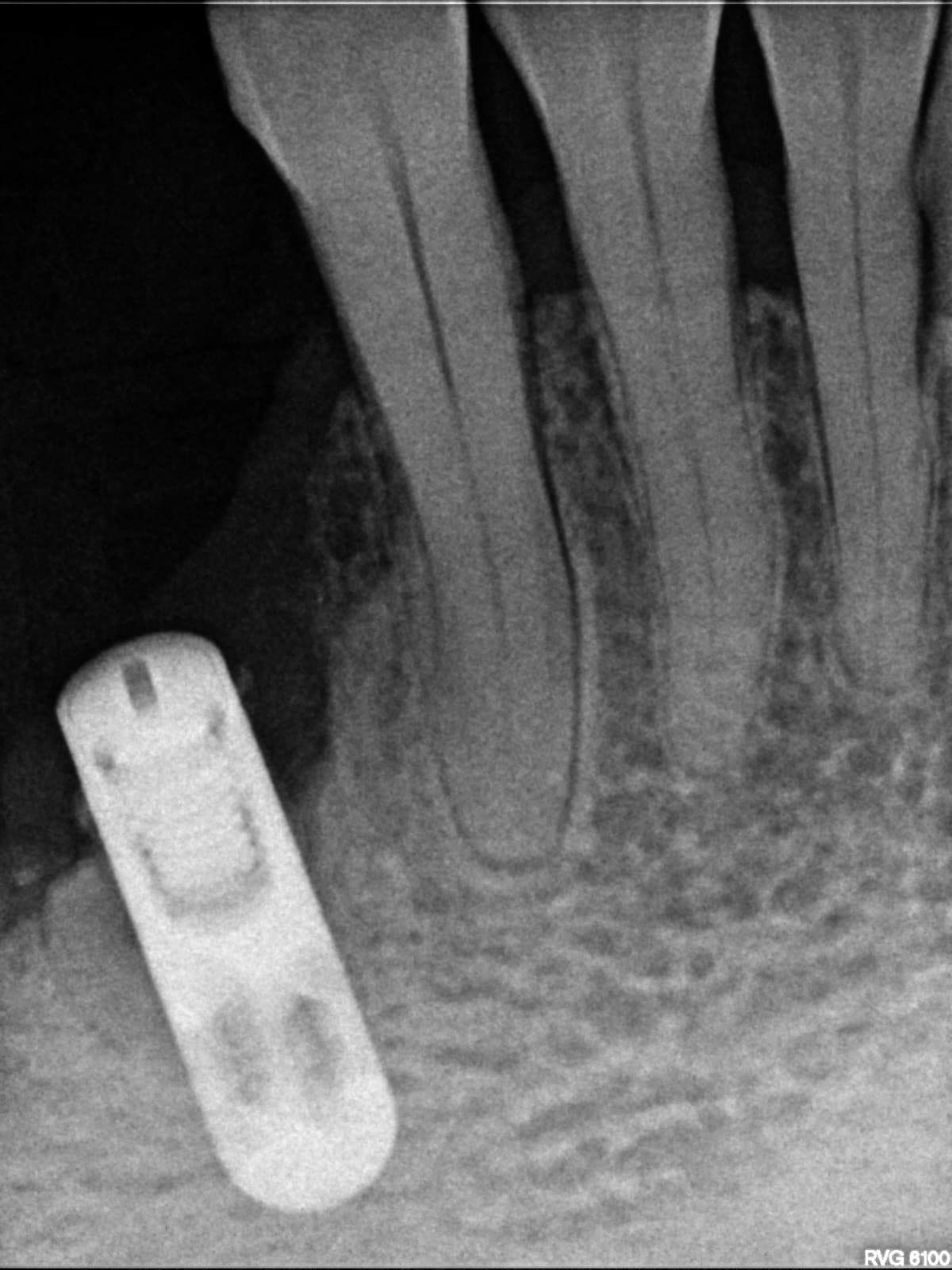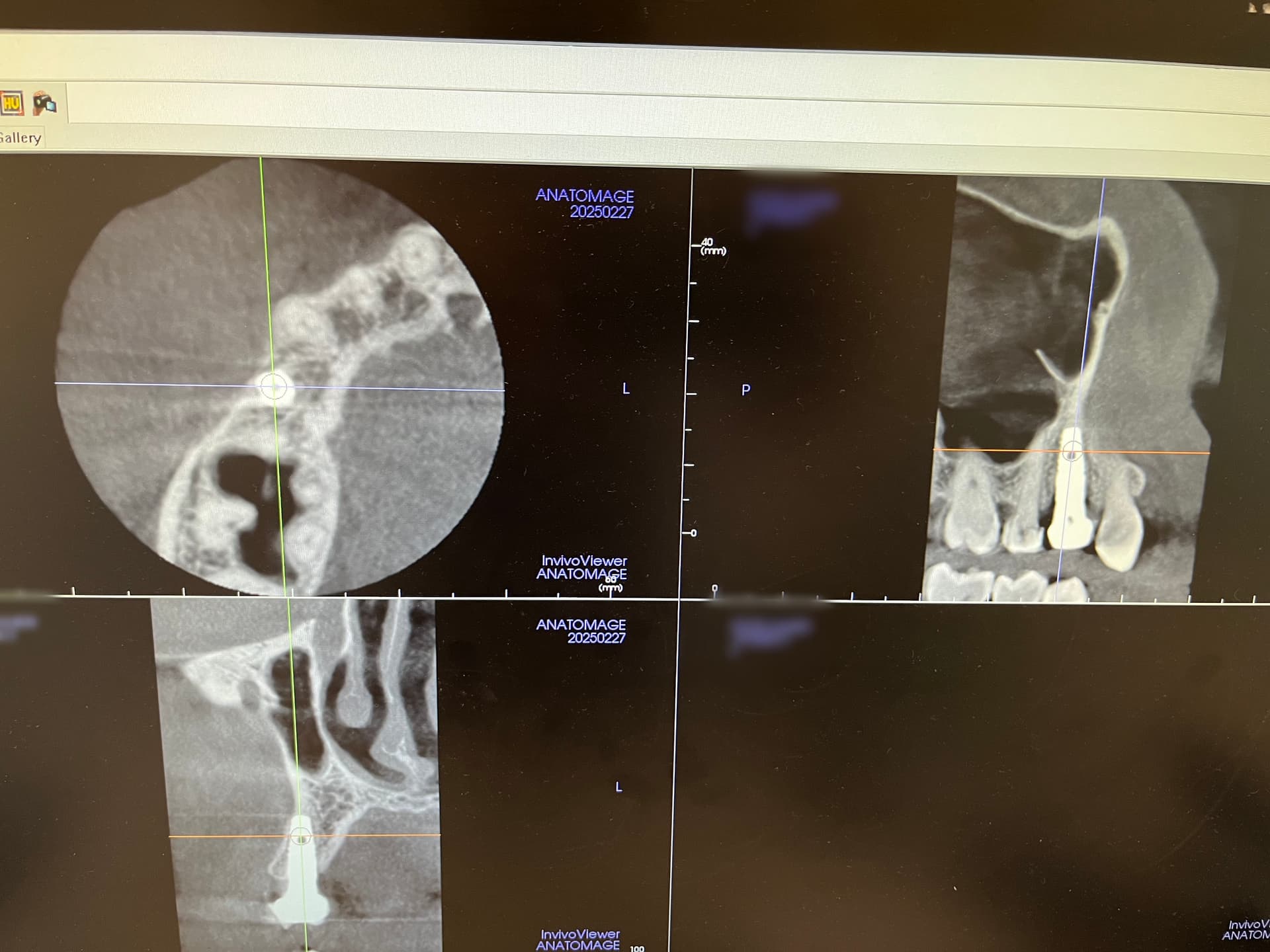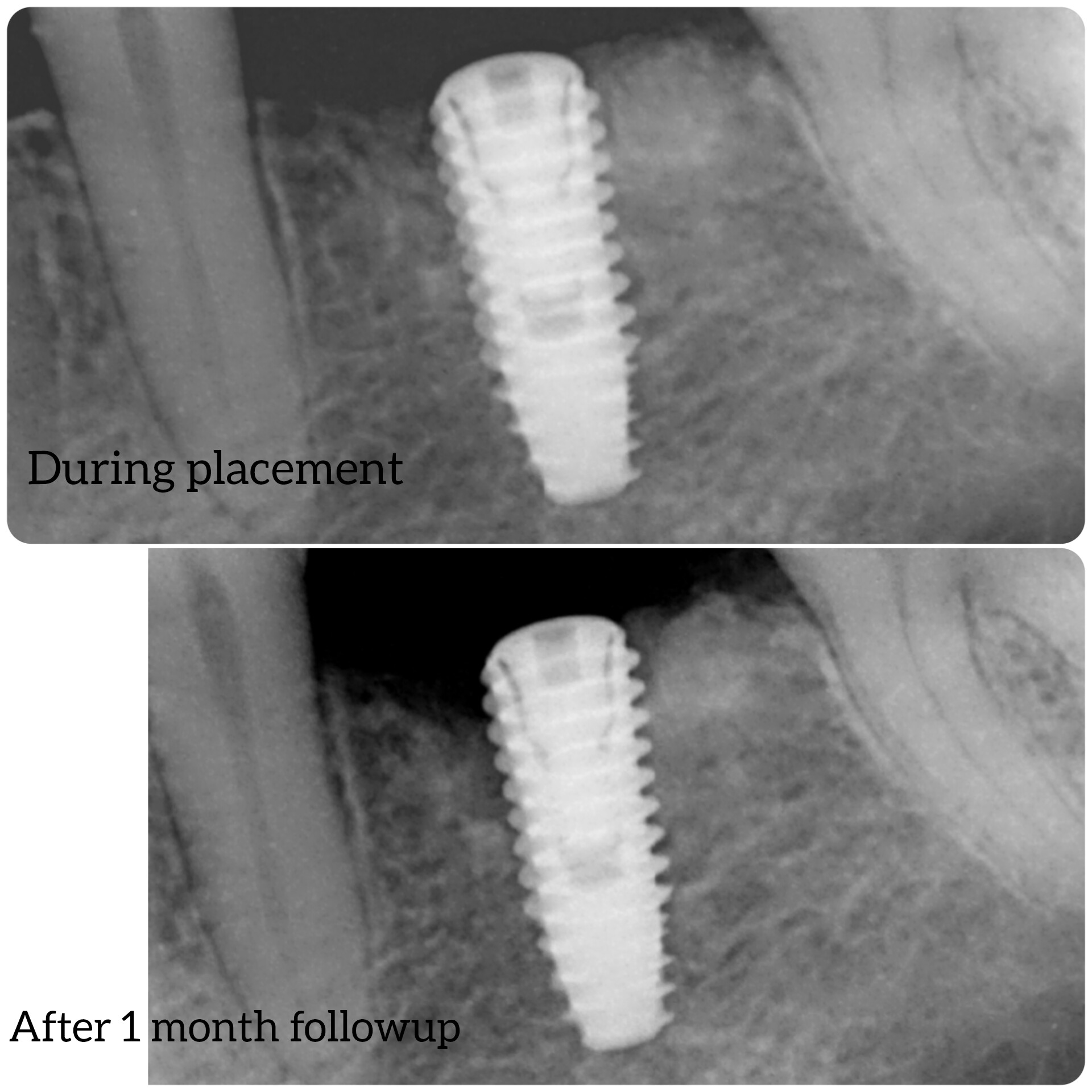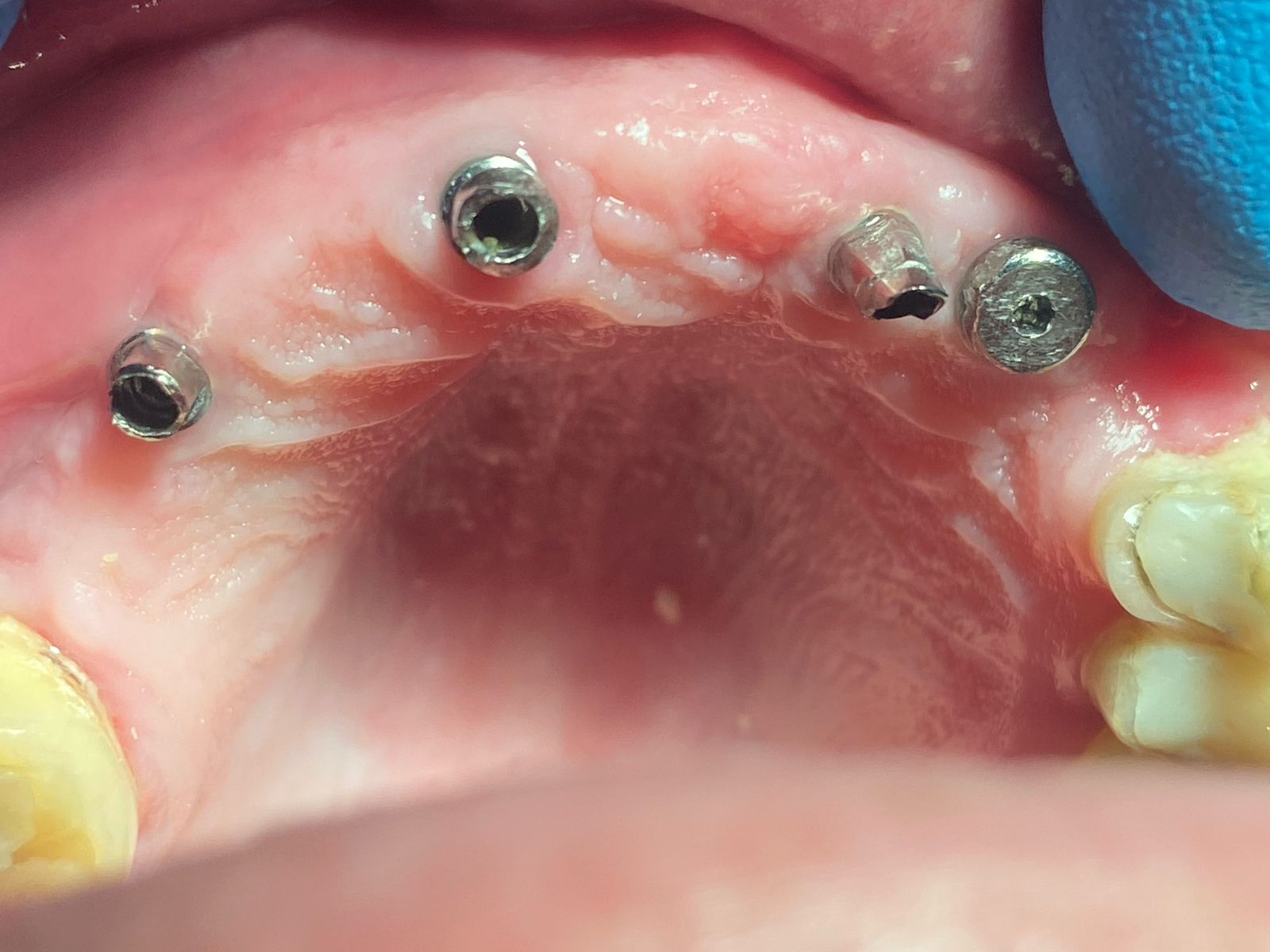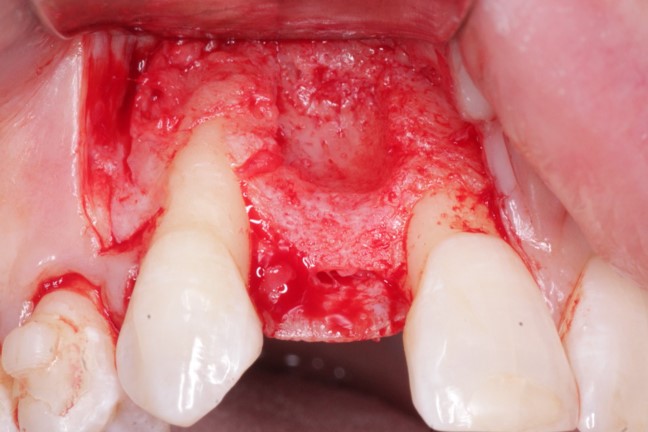Suggestions for bruxer with locator supported overdentures?
I did this locator retained overdenture case ten yrs ago(learned a lot since then!). The lower implants look like the day they were placed. The implants in the maxillary canine positions are original with some bone lose, but still very stable. All implants distal to the canine position failed after approximately 7 yrs. I have sinus grafted and replaced the implants in the second bicuspid sites. The patient is female, age 55, and is a tremendous bruxer. The maxillary overdenture has a metal substructure. Every three years it is time for new dentures. I am very concerned about the longevity of the maxillary implants. If this were a case you inherited what would be your treatment plan? Thanks

5 Comments on Suggestions for bruxer with locator supported overdentures?
New comments are currently closed for this post.
Z
11/15/2017
Is the patient wearing the overdentures overnight? It's pretty intense bruxing if they're not. I bet she's sleeping with them. I would consider putting an implant or two between the canine implants if possible. I would imagine you have a rocking force when patient uses the anterior teeth and if the most posterior locators have high retention caps there would be an extraction force on the implants. I guess you could also reduce the retention on all the maxillary implants so if she's beating the thing up she'll cause the denture to dislodge instead of causing the implants to fail. What type of occlusal scheme do you have? Is the patient skeletally class 2 or 3? Square or tapered arch form? Horseshoe denture or full palate? You may consider making the denture with more tissue support like a traditional removable to give the implants a little extra support. I like the idea the more I think about of leaving the black processing caps on the locators so that her bruxing dislodges the denture. Maybe she'll be able to break the habit that way.
drgary
11/16/2017
Consider adding Botulinum Toxin injections to your treatment modalities for severe bruxers.
Denture Guy
11/16/2017
I think you need anterior implants If you made a partial with only soft tissue support in the anterior you would get rocking in function so that is what is probably happening Locators are just not a good option in the maxilla due to angle issues You might consider a bar but still need anterior implants. You could change to ERA's They do have some compression and rotating function which the locators don't
mwjohnson dds, ms
11/16/2017
I agree with all of the above. At least one more implant anteriorly to get rid of any cantilever. I'm not a big fan of locators in the maxilla because of the flare of the maxilla creating non parallel implants. even though locators can correct some angulation the flare causes the outer portion of the locator to wear more quickly. Also, I like to splint maxillary implants for cross arch stability to decrease individual loads to an implant. Use a bar with hader clips on the bar and Bredent ball attachments off the distal or on the sides to create a low profile bar with firm retention. Locators aren't the best option for a bar either since there is vertical movement of the locators as opposed to the hader and bredent systems. Also, locators add vertical height to the bar decreasing interarch space for the restorative material.
Montana
11/16/2017
Probably wise to diagnose the bruxism etiology before treating it. Daytime? Nighttime? Apnea?
Implant failure in the maxilla is about 20% higher than the mandible when restoring with solitary anchors; most studies report around 75% of implants are retained and of those, bone loss is a typical finding. Why? Because the bone is soft, has little or no cortical plate and the implants are often placed at angles, resulting in binding during function which imparts strain onto the implants. Greater resiliency of the attachment will help offset the latter, but the bone is weak. If space allows, splinting the implants will help compensate for the poor bone quality.










